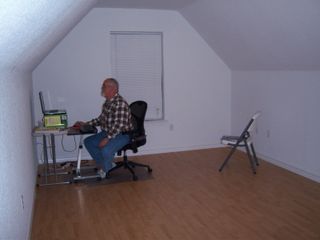A bunch of Canadian showrunners sat down with the Globe & Mail newspaper and shared their worry that they are becoming a dying breed in the TV biz in the Great White North:
They see production companies and network executives interfering endlessly and pointlessly in the direction of certain shows. They say that a series might begin as a drama with occasional moments of comedy, and then, thanks to battles and conniptions in distant offices, by the fifth episode the series has morphed into a comedy.
They worry that hardly anybody in the industry, apart from themselves, understands what the term "showrunner" means (a senior writer with some executive responsibilities). They point out that the best television in recent years – The Sopranos, Six Feet Under, Mad Men, The Shield and, in Canada, Intelligence, have been driven by writers who control almost every aspect of a production, but in Canada a writer is almost never allowed to follow through on a storytelling vision.
That may be why so much Canadian TV is — to be blunt — plodding and dull. Or, as a Canadian commentator put it back in 2003…
Why can't Canadians make a decent cop show? It's not as if they don't have examples to copy. You can't turn on the television without finding a cop show on somewhere. […]Like most Canadian TV dramas, Cold Squad is directed as if it were a stage play. The actors emote as if they were trying to make sure buddy in the back row can follow the play. To buddy on the couch, though, the overacting is just annoying.
[On Canadian cop shows] the characters are usually less than persuasive, for example. The characters on Blue Murder articulate as if they were playing Shakespeare.
[…]The actors of course are not helped by scripts which often seem to have been written by people who've been living in monasteries since birth – monasteries with vows of silence, too. The dialogue and situations are often artificial and beyond any help the actors can give them. Canadian scripts also tend to be short on action and plot twists, preferring long, long over-explained scenes.
I couldn't agree more, at least based on the Canadian dramas that I've seen.
I've produced two U.S. series in Canada — COBRA in Vancouver and MISSING in Toronto — so I've watched a lot of Canadian TV while looking for directors, production designers, and actors. It's no secret why Canadian TV series aren't as marketable or popular worldwide as U.S. or U.K. crime dramas. It's because they are bland, devoid of strong conflicts, sharply-drawn characters and compelling narrative drive. They just can't compete against U.S. or U.K. drama on any level.
I know that's a broad and very unfair generalization, and that there may be Canadian shows that are terrific…but I haven't seen one yet. On the other hand, I've seen a LOT of fantastic British crime dramas, though. It's not that Canada doesn't have the writing talent…it does…but I suspect that their best TV writers head to the U.S. as soon as they possibly can (at least that's what I've been told by my friends toiling in Canadian TV). The Globe & Mail worries about that, too:
What I take away is that they want to stay, to live and write on the
West Coast, and tell their stories there. Given their worries and
horror stories, I fear that, sooner rather than later many will be in
on the West Coast, but in Los Angeles, and they won't be telling
Canadian stories.
Back when I was a writer on MURPHY'S LAW, which we shot up in Vancouver in 1989, I endured some episodes of STREET LEGAL, a wanna-be L.A. LAW that was the "crown jewel" of Canadian TV at the time. It was a series that seemed utterly devoid of conflict. There were shampoo commercials with more gripping storylines and more at stake for their characters. I couldn't understand how anyone could write a TV show that was so bland…or why anyone would want to watch it.
NIGHT HEAT, made around the same time, managed to make TJ HOOKER look like NYPD BLUE by comparison. MOM PI, TRADERS, DANGER BAY, NEON RIDER, NORTH OF 60, ENG, and DIAMONDS, while not all cop shows, I recall as being mind-numbingly dull.
I've been told many times that DAVINCI'S INQUEST is the best cop show ever made on Canadian TV. I've only seen some early episodes of the series, and one episode of the DAVINCI'S CITY HALL sequel series, and if that is the crown jewel of Canadian crime drama today, it's not saying much for the genre up there.
More recent Canadian cop shows like BLUE MURDER and COLD SQUAD were unbearably ponderous, musty and flat, not even remotely in the same league as U.S. or U.K. dramas. Simply compare COLD SQUAD to the similarly-themed U.S. series COLD CASE or the U.K's WAKING THE DEAD and you'll see what I mean…or compare the Canadian MURDOCK MYSTERIES to the U.K.'s INSPECTOR MORSE, REBUS, or LEWIS. The Canadian stuff feels desaturated, sanitized of color, emotion, drama and energy.
To be fair, I haven't seen INTELLIGENCE, FLASHPOINT or THE BORDER — but I have heard
very good things about them. They may represent a significant
turning point in Canadian episodic crime dramas. I certainly hope so.
Perhaps the problems with Canadian episodic drama all comes down an unwillingness by Canadian networks to commit to the showrunner system, to allow writers with a strong, consistent, artistic vision to run their series. If so, it's a damn shame.




